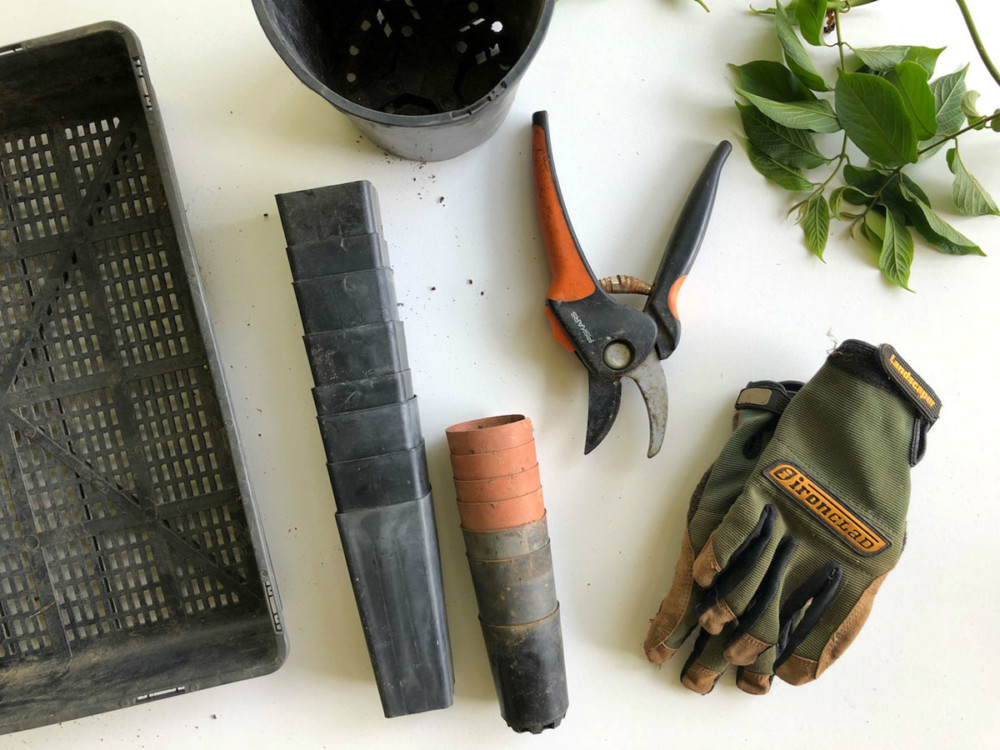
4 Tips for a Green Garden in Philly
Alas, gardening season is here.
Growing your own fruits, vegetables, and herbs is a fun and effective way to eat sustainably. It doesn’t get more “local” than your own backyard!
There are ways to grow edible plants in ways that are both healthier for yourself and the environment. Here are some key points to keep in mind for the farmer in you:
4 Tips for a Sustainable Garden
1. Use Raised Beds, Pots, and/or Planters
Philly’s long and varied history means that you never know for sure what could be in your soil (without having it tested–more on that later).
For centuries, Philadelphia was home to many different land uses. Lots that are residential now may have been industrial in the past. Oftentimes, factories abutted homes.
Even if your yard wasn’t on or near a polluting industry, the soil may still have residual contamination. For example, decades of use of lead paint and leaded gasoline may have left its impact on your soil. While it is possible to have your soil tested to compare your results with residential soil standards, these standards weren’t necessarily developed for soil as a growing medium. To ensure healthy soil, it is best to use raised beds, pots, and/or planters whenever possible.
You can purchase a raised bed kit online or at a local hardware store, or build one yourself. Fill it with a mixture of store-bought soil and compost. You can make your own compost, purchase some from a local vendor, or utilize the free compost offered by the City’s Parks Department for free (more info here).
Using raised beds, pots, and/or planters has the added benefit of conserving soil and reducing the likelihood of disease, pests, and weeds diminishing your harvest.
2. Plant Varieties Suitable for Our Climate
Not all plants are suitable for growing in our climate. Use varieties that have a proven track record of success in our area.
Many Philly-area varieties have been developed and refined by local farmers for hundreds of years. Others may still be suitable for growing here. A local garden store can point you in the right direction. Choosing varieties suitable for our climate reduces the risk of losing your harvest to drought or disease, or requiring more water than our climate provides.
3. Take Advantage of Nature’s Pest Control
Nature has blessed us with some pretty effective pest control tactics you may not have even known about. Many pests are adverse to onions, garlic, marigolds, and hot peppers. Planting these around or interspersing them within your garden can ward off critters looking to take a bite out of your harvest. You can even make a mixture of cayenne, garlic, and water in a spray bottle to rid your crops of pests.
It is also a good idea to separate and rotate crops by variety. Rather than placing all of your eggplant, cucumbers, or beans in one place, for example, spread them around so pests particular to that variety will be less likely to congregate in that area. It is also a good idea to employ this logic when it comes to plant families–for example, peppers, eggplant, potatoes, and tomatoes are all related and can succumb to the same diseases and pests. The same thing is true for squash, cucumbers, melons, and pumpkins. Try not to plant the same thing in the same spot two years in a row.
When these strategies are not effective, natural pesticides may be the answer. Neem oil can cure many types of disease when applied to the plant. There are also options in the form of bacterial pesticides. They will affect more species than just the pest however, so be sure to only use these strategies as a last resort. One reason specifically is that some critters are beneficial (pollinators especially). Aside from pollinators, some insects are predatory and will keep harmful insects at bay. For example, ladybugs feast on aphids while praying mantids prey upon larger species of pests. Both can be obtained at your local garden store.
When weeds are your problem, there are also some things you can do to limit their occurrence in the first place. A thick mulch cover does a great job of keeping weeds down. You can even lay down newspaper or geofabric down before applying the mulch.
4. Conserve Water
Mulch has the added benefit of keeping your soil moist. Reducing water loss to evaporation will mean that you’ll use less water to keep your plants happy. The best part is, mulch is available for free from the City! Learn more here.
Collecting rainwater with rain barrels is a popular way to reduce water usage; however, you are better off using this water for nonedible species unless you know for sure that the water is free from contaminants from your roof or gutters.
It is possible to reduce water use without using harvested rainwater. Setting up a drip or line irrigation system will deliver water right to where plants need it–the roots–without loss to the atmosphere or surrounding area as is the case with sprinklers (utilizing a watering can also works well). If you’ll be using a hose, make sure to inspect the hose, nozzle, and valve connection for leaks.
Lastly, keep in mind that gardening is a low-impact and fun way to enjoy the outdoors in the comfort of your own yard. While the benefits of eating local are well known, it doesn’t hurt to make this practice more sustainable while doing so. You might even find you have a “green” thumb as a result!





